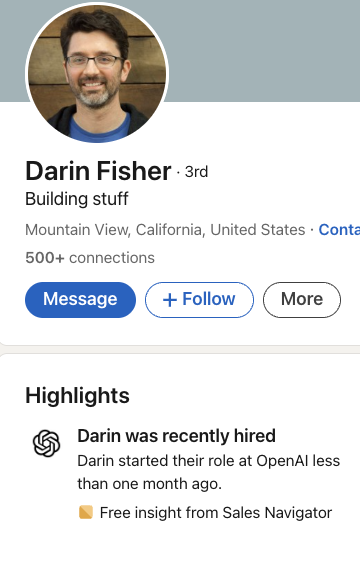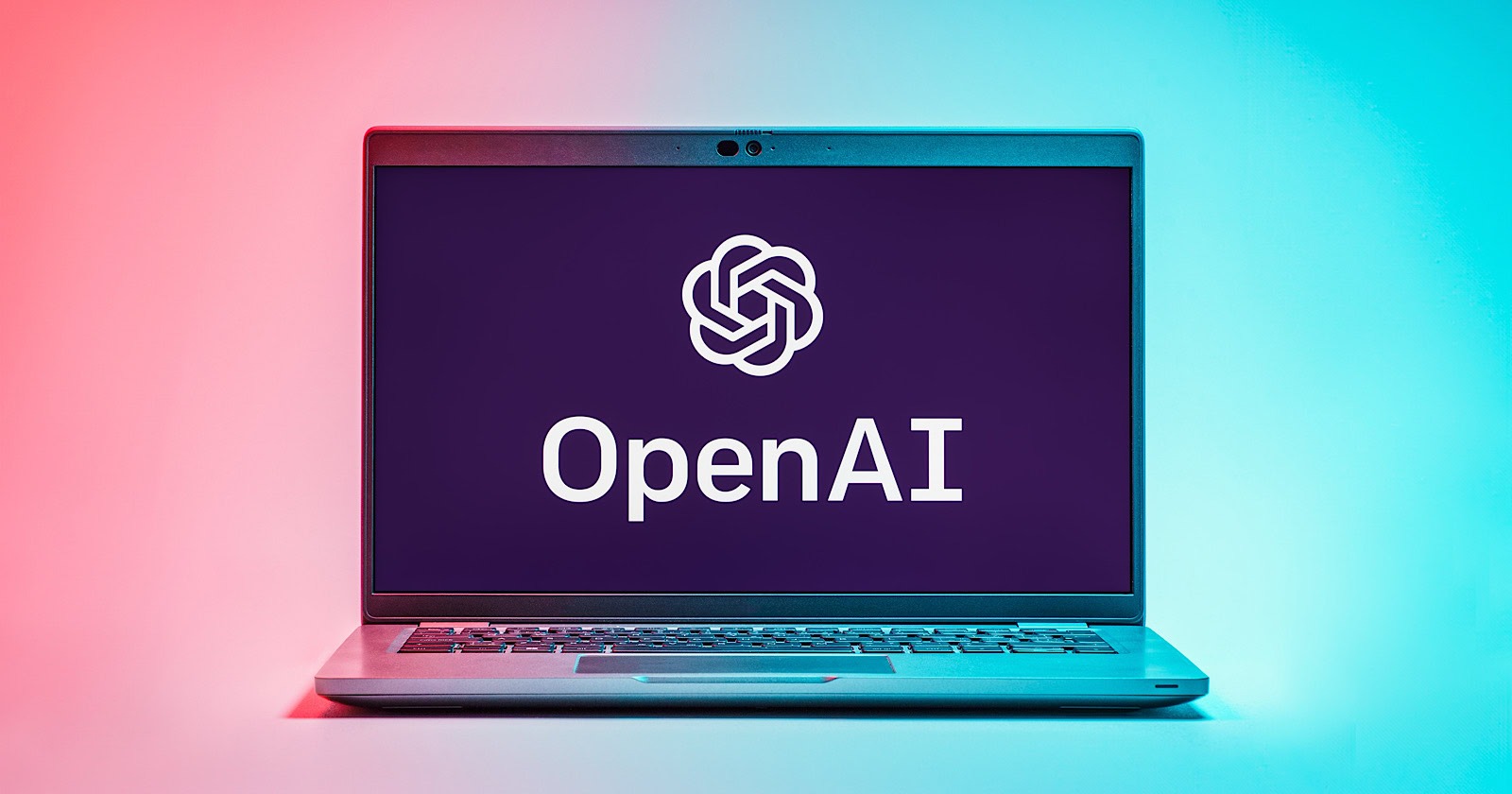In what appears to be a development in OpenAI’s expansion, former Chrome engineering veteran Darin Fisher has joined the AI company.
This move adds fuel to earlier reports about OpenAI’s plans to develop a web browser to compete with Google Chrome.
Background & Context
Earlier reports from The Information indicated that OpenAI has been quietly assembling a team of former Google developers to work on a new browser project.
The company is in talks with Conde Nast, Eventbrite, Redfin, and Priceline to create specialized search features for travel, food, real estate, and retail websites.
Latest Development
According to an update to his LinkedIn profile, Fisher has recently joined OpenAI.
 Screenshot from LinkedIn, November 2024.
Screenshot from LinkedIn, November 2024.His arrival is noteworthy, given Fisher’s background in browser development.
His professional history includes contributions to Google Chrome, Mozilla Firefox, and Neeva, making him an asset for OpenAI’s browser ambitions.
You can learn more about Fisher and what he brought to the Chrome team in the video below:
About Darin Fisher
As one of Chrome’s founding engineers, Fisher played a pivotal role in shaping what would become one of the world’s most popular browsers.
Under Fisher’s leadership, Chrome introduced features like multi-process architecture and embraced a minimalist design philosophy summarized by the mantra “content, not chrome.”
His team focused on four core principles: simplicity, speed, security, and stability.
Rather than building a cross-platform framework, he insisted on native development for each operating system, starting with Windows before expanding to Mac and Linux.
This decision, while creating more work initially, ensured optimal performance on each platform.
What Does Fisher Bring To OpenAI?
Fisher’s emphasis on minimalist design and “getting out of the way” could complement AI integration – imagine a browser that anticipates needs without cluttering the interface.
His experience with Chrome’s early development could help OpenAI avoid common pitfalls while building a browser from scratch.
The browser might feature:
- AI-powered processes running in separate threads (building on his multi-process architecture expertise)
- Clean, distraction-free interface that emphasizes content
- Native performance optimization for each platform
- Intelligent features that appear only when needed, maintaining simplicity
Fisher’s experience could help OpenAI create a browser that makes AI feel natural and intuitive rather than just adding features for its own sake.
His track record of making complex technology feel simple could be vital in making AI more accessible.
Potential Impact
This development comes at a critical time in the browser market.
Google Chrome dominates with approximately 65% of desktop and 68% of mobile users.
However, the market could shift following recent U.S. Department of Justice proposals suggesting Google should divest its Chrome browser business due to monopoly concerns.
Looking Ahead
While OpenAI’s browser project is reportedly in the early stages, the addition of experienced browser developers like Fisher suggests the company is serious about entering this space.
The potential browser is expected to feature deep integration with ChatGPT and AI-powered search capabilities, though a launch timeline remains unclear.
This move represents another step in OpenAI’s apparent strategy to expand beyond pure AI development into consumer-facing products.
Featured Image: JarTee/Shutterstock
